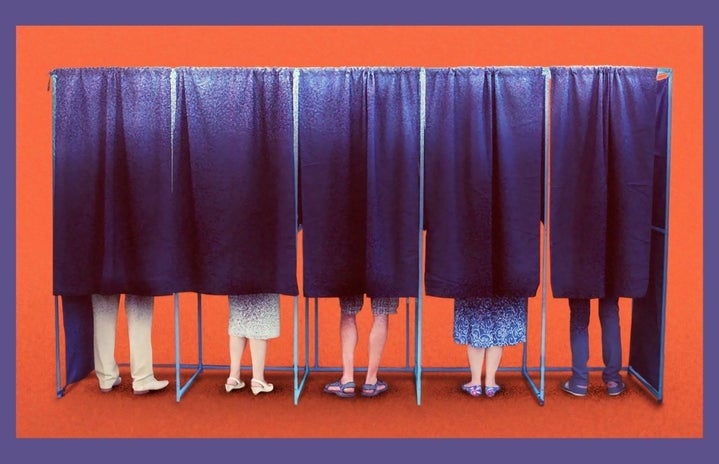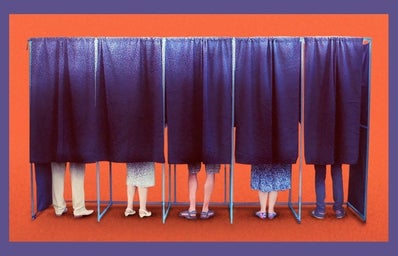“Politics doesn’t interest you because you have no interest in changing a world that suits you so well.” (Enola Holmes, 2020)

Voting: the shining sword that democracy welds. One of our founding principles was no taxation without representation, that representation being voting, holding an office, helping guide the way for new laws and amendments. Over the past few months, more and more people have started discussing how not voting can be seen as privileged. Privilege, as the dictionary defines it, “prerogative refers to a special advantage or right possessed by an individual or group. A privilege is a right or advantage gained by birth, social position, effort, or concession.”
With the country more divided, privilege has become more and more of a negative word, and many seem to think it doesn’t exist. The argument seems to be who has it worst, or the common statement “well I grew up poor” when talking about privileges that have to do with race. This argument that people seem to be having is not addressing what privilege is; instead, it drives us farther apart.

So how is not voting a sign of privilege? Our country was founded on voting; if you don’t like what is happening, then vote and change the outcome. When the country was found, only 6 percent of the population could vote, and even after the civil war, when Black Americans got the right to vote, there was still discrimination against them. Women couldn’t vote till 1920, and the civil right voting act wasn’t pasted till 1965, that stopped discrimination at the polls against Minories. For so long, only a specific section of the American population could vote and they controlled the country’s outcome.
Abstaining from voting means you have nothing at stake, your marriage won’t be overturned (Marrige Equality 2015), you will still have healthcare (Affordable healthcare act 2010). You will also have access to different types of healthcare (Roe v. Wade, 1973). You don’t need change when it comes to laws and how the police will enforce those laws (BLM), and you don’t need care about how immigration gets handled when it comes to your family (ICE). Though none of these might affect you, they affect someone and their family. Voting for them is voting for their rights, and not voting means none of your rights are at risk.
Not voting is a privilege because no matter the outcome, your rights won’t be affected. Yes, the voting system still needs some work and is far from being 100 percent fair, but voting is the only way to make that happen. So vote, vote because you love democracy, vote because your rights are at stake, vote because you want your voice heard, vote because so many have fought for your right to vote, from the revolutionary war (1776), to the civil war (1861), to women suffrage (1920), to the civil rights movement (1965). Vote because as an American it is your right and duty to vote.




